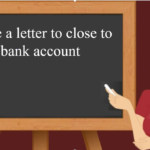An interjection is a word or a phrase that expresses strong emotion, sudden feeling, or a reaction. Interjections are often used to convey surprise, joy, anger, excitement, or other strong emotions. They are not grammatically connected to other parts of the sentence and often stand alone to express the speaker’s emotional state.
Types of Interjections:
-
Joy or Excitement:
- Examples:
- Yay: Yay, we won the game!
- Hooray: Hooray, it’s your birthday!
- Wow: Wow, that’s an amazing performance!
- Examples:
-
Surprise or Amazement:
- Examples:
- Oh: Oh, I didn’t expect to see you here!
- Ah: Ah, what a beautiful sunset!
- Eh: Eh, that’s an interesting idea!
- Examples:
-
Approval or Agreement:
- Examples:
- Bravo: Bravo, that was an excellent performance!
- Well done: Well done, you aced the exam!
- Aha: Aha, I see what you did there!
- Examples:
-
Disapproval or Disgust:
- Examples:
- Ugh: Ugh, I can’t stand this heat!
- Yuck: Yuck, this food tastes awful!
- Gross: Gross, I accidentally stepped on something.
- Examples:
-
Pleasure or Agreement:
- Examples:
- Aah: Aah, this hot bath is so relaxing!
- Yes: Yes, I would love to go with you!
- Great: Great, I’m glad you enjoyed the movie!
- Examples:
-
Greeting or Farewell:
- Examples:
- Hello: Hello, how are you doing today?
- Hi: Hi, nice to see you!
- Goodbye: Goodbye, have a safe trip!
- Examples:
-
Attention or Calling:
- Examples:
- Hey: Hey, wait for me!
- Psst: Psst, over here!
- Look: Look, there’s a shooting star!
- Examples:
-
Pain or Discomfort:
- Examples:
- Ouch: Ouch, that hurt!
- Agh: Agh, my head is pounding!
- Eek: Eek, a spider!
- Examples:
-
Indifference or Confusion:
- Examples:
- Meh: Meh, I’m not really interested.
- Hmm: Hmm, I’m not sure what to do.
- Well: Well, I don’t know about that.
- Examples:
-
Sarcasm or Mockery:
- Examples:
- Oh, great: Oh, great, I missed the bus!
- Fantastic: Fantastic, just what I needed!
- Brilliant: Brilliant, you forgot the keys again!
- Examples:
Interjections add emotional and expressive elements to language, allowing speakers to convey their feelings and reactions in a more vivid and immediate way. They are versatile and can be used in various contexts to capture the speaker’s emotional response to a situation.
A) Yay
B) We
C) Won
Show/Hide
Answer: A) Yay
Explanation: “Yay” is the interjection expressing joy or excitement.
A) Oh
B) I
C) See
Show/Hide
Answer: A) Oh
Explanation: “Oh” is the interjection expressing surprise or amazement.
A) Approval
B) Disapproval
C) Agreement
Show/Hide
Answer: B) Disapproval
Explanation: “Ugh” is the interjection expressing disapproval or disgust.
A) Aah
B) Hot
C) Relaxing
Show/Hide
Answer: A) Aah
Explanation: “Aah” is the interjection expressing pleasure or agreement.
A) Meh
B) I
C) Interested
Show/Hide
Answer: A) Meh
Explanation: “Meh” is the interjection expressing indifference or confusion.
A) Attention
B) Hey
C) Someone
Show/Hide
Answer: B) Hey
Explanation: “Hey” is the interjection used for attention or calling someone.
A) Ouch
B) That
C) Hurt
Show/Hide
Answer: A) Ouch
Explanation: “Ouch” is the interjection expressing pain or discomfort.
A) Yes
B) Love
C) Go
Show/Hide
Answer: A) Yes
Explanation: “Yes” is the interjection expressing pleasure or agreement.
A) How
B) Are
C) Hello
Show/Hide
Answer: C) Hello
Explanation: “Hello” is the interjection used for greeting.
A) Well
B) Confusion
C) Indifference
Show/Hide
Answer: A) Well
Explanation: “Well” is the interjection expressing indifference or confusion.





